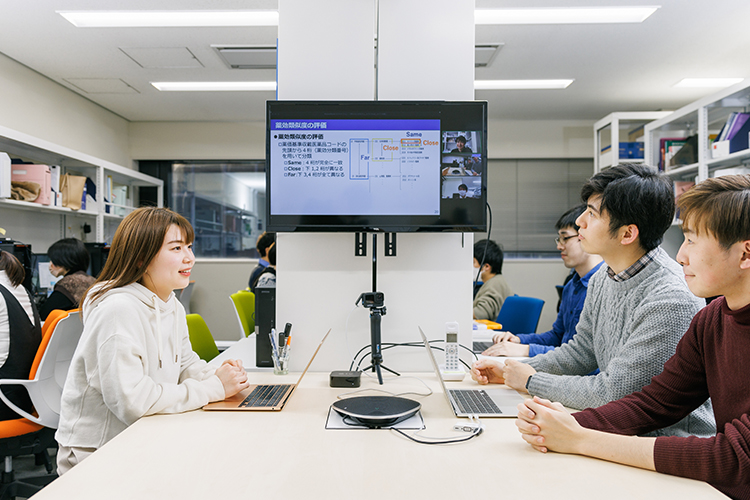About
Creating the future
of healthcare
from
a pharmaceutical
perspective based on
informatics.


The Division of Drug Informatics is committed to solving issues in healthcare and local communities by using an interdisciplinary approach based on informatics. We focus particularly on the disease prevention, the therapeutic optimization, and the promotion of patient safety from a pharmaceutical perspective. Our research aim is to collect, analyze, evaluate, and verify (including laboratory work) “medical and health information ” in the real world (medical sites, local communities, and everyday life), and to generate new evidence and to develop systems through these activities.
For conducting our research, it is required to interact with various informatics-related fields, and also to integrate with boundaries of research fields. Therefore, our laboratory is actively engaged in collaborative research with researchers in other fields, as well as undertaking research that incorporates methodologies from related fields. A feature of our laboratory is that much of our research is conducted in collaboration with medical professionals (pharmacists and other medical professionals) working in the healthcare settings, as well as with other participants (e.g., patients and local communities).
We always keep in mind the return of research findings to healthcare and the local community, and while valuing free and flexible ideas, our key focus is research that will impact positively on the future of healthcare from a pharmaceutical perspective.
Research

Research on collection,
sharing and utilization
of medical and health information.
To promote the disease prevention, the therapeutic optimization, as well as patient safety, it is essential to quickly grasp the issues and needs of healthcare and local communities at an early stage.
Our laboratory aims to establish and implement a healthcare model for efficiently collecting, sharing, and utilizing medical and health information centered on community pharmacies. Using the medical and health information accumulated through these models, we are generating evidence to support individualized and appropriate pharmacotherapy (e.g., models for predicting adverse drug reactions) and patient safety (e.g., establishing methodology for predicting medication errors).
In addition, we are focusing on research aimed at utilizing non-medical data for medical purposes (e.g., development of technology for extracting treatment concerns and adverse events from patient blogs on social networking services, etc.).

Research on analysis,
evaluation, and implementation
of medical and health information.
To solve various medical issues, we are conducting research to establish new evaluation methods and to generate new evidence concerning the effectiveness, safety, and economics of medications and healthy foods, to develop a system for preventing medication errors using machine learning, to personalize medication treatment, and to support decision-making in medication.
Our research on the personalized medicine focuses on individual differences regarding the efficacy, adverse drug reactions, and drug-drug interactions, by applying experimental, clinical pharmacological, and epidemiological methods.